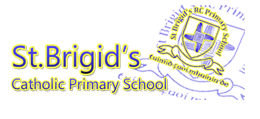The curriculum
The Early Years education we offer our children is based on the principle that:-
- Every child is a unique child who is constantly learning.
- Children learn to be strong and independent through positive relationships.
- Children learn and develop well in enabling environments.
- Children develop and learn in different ways.
The curriculum of the Foundation Stage underpins all future learning and is based on ongoing observations and assessments in three prime areas of learning:-
- Personal, social and emotional development – The school fosters and develops relationships between home, school, children’s centres and places of worship in order to make links stronger for the good of the community as a whole. Children are encouraged to learn to work, share, take turns and co-operate with others. They are encouraged to be independent and make choices for themselves. They are also encouraged to be sensitive to the needs of others and to respect other cultures and beliefs. Children are enabled to become confident and develop a positive self image.
- Communication and language – This covers all aspects of language development and provides the foundation for literacy skills. Children’s developing competence in speaking and listening is focused on. We aim to extend and enrich the children’s vocabulary through story time, rhymes, role-play and group discussions. Children are encouraged to share their own experiences through speaking and acting out events in imaginative play and talking about their own ideas. They are encouraged to take part in class activities such as working with puppets, role-play, participating in music sessions and saying rhymes and singing songs together.
- Physical development – Children are given opportunities to move to music, use equipment, develop and practice their fine and gross motor skills. They develop an increasing understanding of how their body works and what is needed to be healthy. This is done in both indoors and outdoors and by working with a wide range of resources. Children may also participate in PE lessons which include gym, games and dance.
and four specific areas:-
- Literacy – We have a variety of resources for the children to use to help them develop early literacy skills. Children are encouraged to use the mark-making areas indoors and outdoors independently but they also take part in teacher-led activities. These activities include whole class shared reading, phonics sessions and small group guided reading and writing. The pre-writing work encourages correct pencil control, left/right orientation and letter formation. Children have the opportunity to develop their writing skills in accordance with their age, ability and competence. We encourage children to treat books and other resources with respect and they are given many opportunities to listen to stories told by the staff.
- Mathematics – We aim for children to achieve mathematical understanding and a firm foundation for numeracy through practical activities and using and understanding language in the development of simple mathematical ideas. Pre-number work is covered through nursery rhymes and number activities. Children are given the opportunity to learn about number, shape, space, position, pattern and measurement. Towards the end of the Foundation stage children start learning to tell the time and are given opportunities to learn about money and simple calculations.
- Understanding the World – All children are given opportunities to solve problems, investigate, make decisions and experiment. They will learn about living things, their environment, the world around them and the people who are important in their lives. We follow the Catholic Religious Education Programme, Come and See and also study other religions. Children are also given opportunities to develop computing skills and to work with and use modern technology.
- Expressive arts and design – We provide opportunities for all children to explore and share their thoughts, ideas and feelings through a variety of art, design, technology, music, drama, movement, dance and imaginative play activities. Children are given opportunities to make paintings, drawings, collages, models and use basic musical instruments. Children also learn new songs and rhymes and enjoy singing them with each other. Colour recognition is taught, naming colours, mixing paints, sorting and matching through various times during the year children are given the opportunity to participate in the school nativity and assembly.
The characteristics of effective learning
The ways in which the child engages with other people and their environment – playing and exploring, active learning, and creating and thinking critically, underpin learning and development across all areas and support the child to remain an effective and motivated learner. We know that:
- Children’s play reflects their wide ranging and varied interests and preoccupations. In their play, children learn at their highest level. Play with peers is important for children’s development
- Children learn best through physical and mental challenges. Active learning involves other people, objects, ideas and events that engage and involve children for sustained periods
- When children have opportunities to play with ideas in different situations and with a variety of resources, they discover connections and come to new and better understandings and ways of doing things. Adult support in this process enhances their ability to think critically and ask questions.
Weekly planning takes into account the needs of the individual or groups of children using ongoing observations and informal assessment.
